Categories
Law
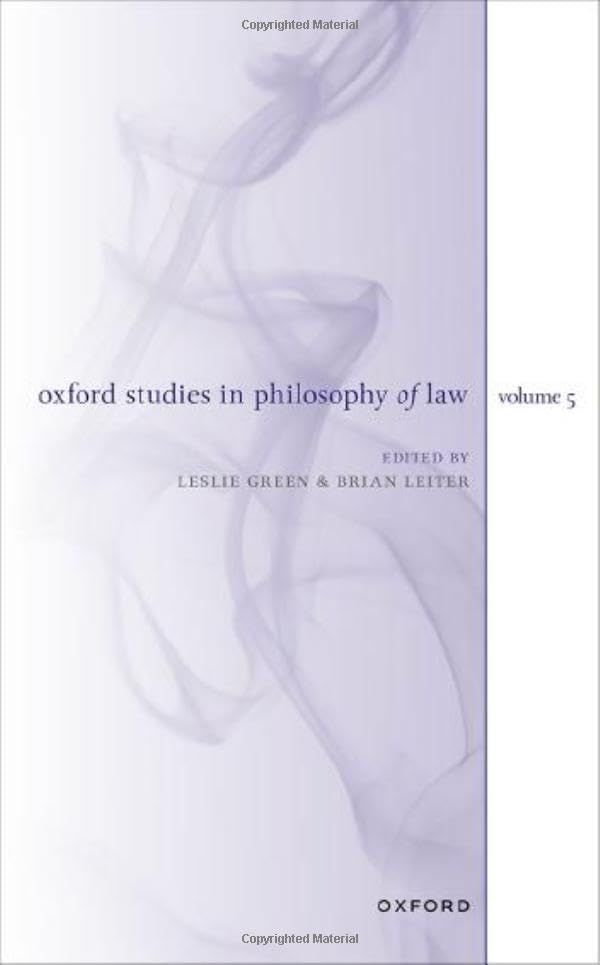
Oxford Studies in Philosophy of Law Volume 5
Leslie Green, Brian Leiter
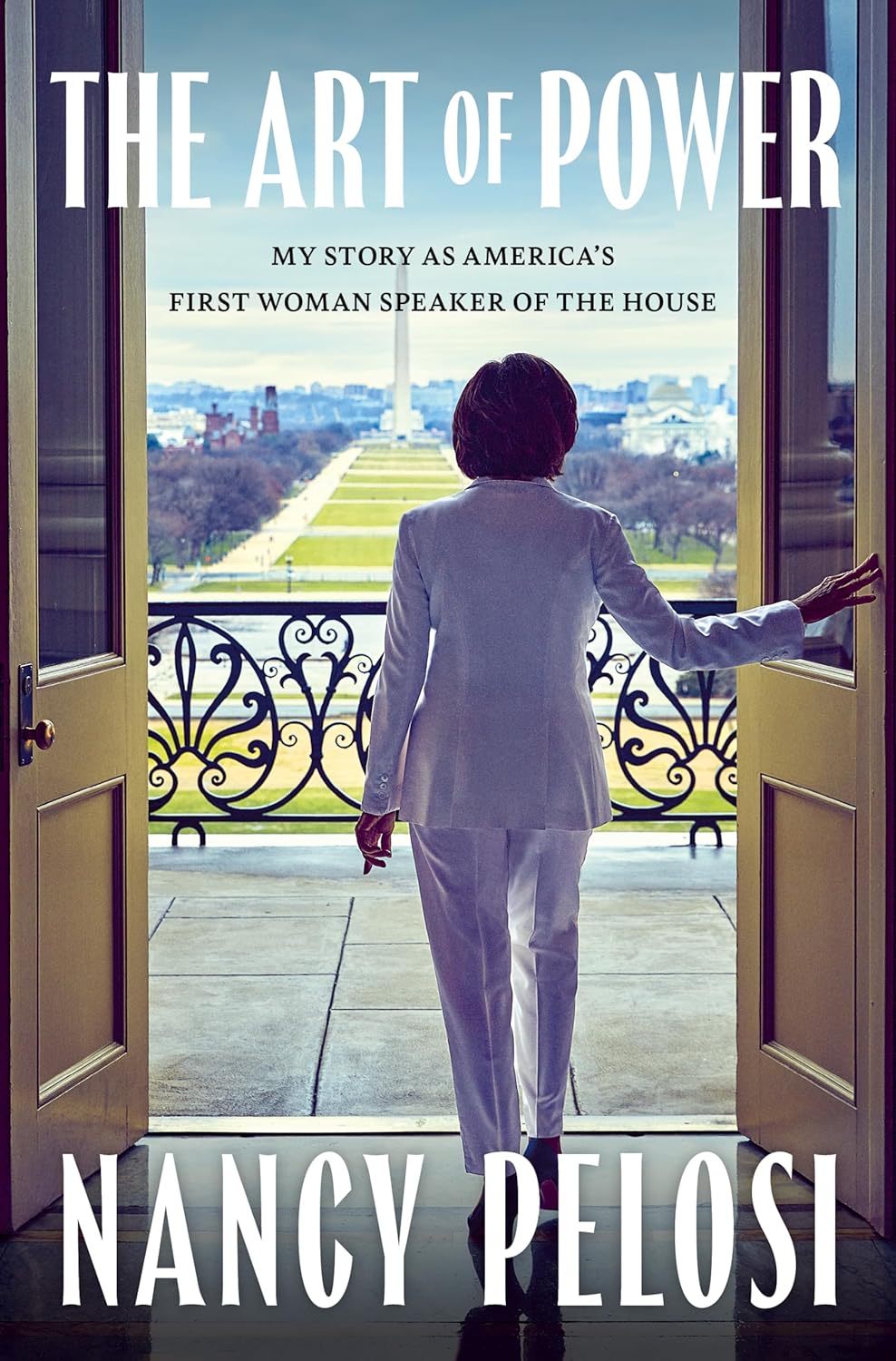
The Art of Power: My Story as America's First Woman Speaker of the House
Nancy Pelosi
The most powerful woman in American political history tells the story of her transformation from housewife to House Speaker how she became a master legislator, a key partner to presidents, and the most visible leader of the Trump resistance. When, at age forty-six, Nancy Pelosi, mother of five, asked her youngest daughter if she should run for Congress, Alexandra Pelosi answered: ';Mother, get a life!' And so Nancy did, and what a life it has been. InThe Art of Power, Pelosi describes for the first time what it takes to make history not only as the first woman to ascend to the most powerful legislative role in America, but to pass laws that would save lives and livelihoods, from the emergency rescue of the economy in 2008 to transforming health care. She describes the perseverance, persuasion, and respect for her members that it took to succeed, but also the joy of seeing America change for the better. Among the best-prepared and hardest-working Speakers in history, Pelosi worked to find common ground, or stand her ground, with presidents from Bush to Biden. She also shares moving moments with soldiers sent to the front lines, women who inspired her, and human rights activists who fought by her side. Pelosi took positions that established her as a prophetic voice on the major moral issues of the day, warning early about the dangers of the Iraq War and of the Chinese government's long record of misbehaviour. This moral courage prepared her for the arrival of Trump, with whom she famously tangled, becoming a red-coated symbol of resistance to his destructive presidency. Here, she reveals how she went toe-to-toe with Trump, leading up to January 6, 2021, when he unleashed his post-election fury on the Congress. Pelosi gives us her personal account of that day: the assault not only on the symbol of our democracy but on the men and women who had come to serve the nation, never expecting to hide under desks or flee for their lives and her determined efforts to get the National Guard to the Capitol. Nearly two years later, violence and fury would erupt inside Pelosi's own home when an intruder, demanding to see the Speaker, viciously attacked her beloved husband, Paul. Here, Pelosi shares that horrifying day and the traumatic aftermath for her and her family.
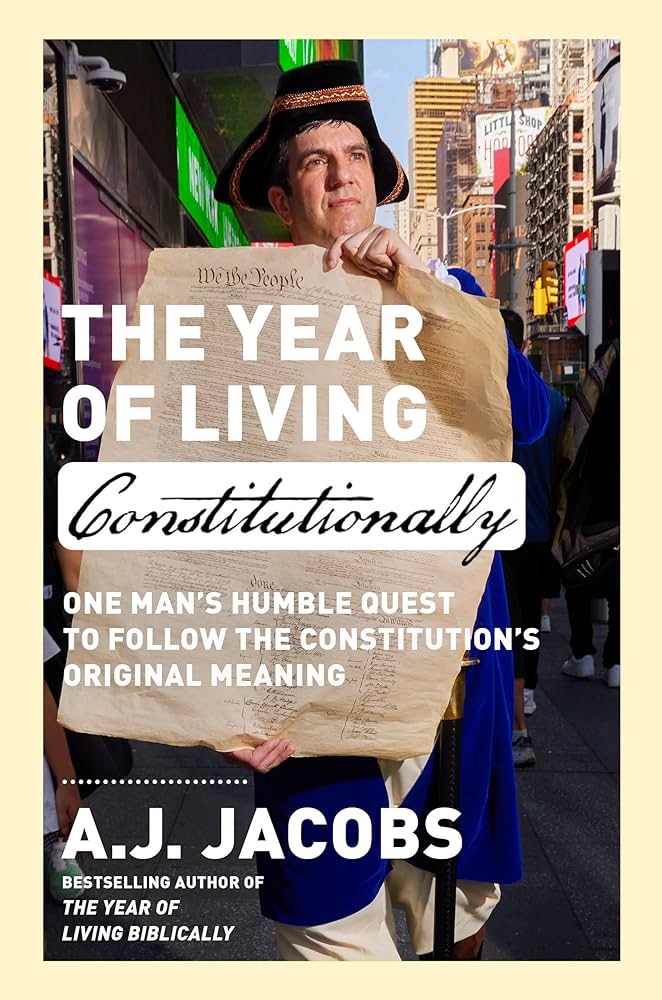
The Year of Living Constitutionally: One Man's Humble Quest to Follow the Constitution's Original Meaning
A.J. Jacobs
The New York Times bestselling author of The Year of Living Biblically attempts to follow the original meaning of the Constitution in search of answers to one of the most pressing issues of our How should we interpret America’s foundational document? Is the Constitution a living document that needs to evolve with the times? Or should we try to divine the original meaning that our Founding Fathers intended, and hew to that as strictly as possible, as present-day originalists suggest? In The Year of Living Constitutionally , A.J. Jacobs tries to get inside the minds of the Founding Fathers by living as closely as possible to the original meaning of the Constitution. He exercises his Second Amendment rights by marching around Manhattan with a colonial musket. He asserts his right to free speech by writing his opinions on parchment and handing them out in Times Square. He turns his home into a traditional 1790s household by lighting candles, boiling mutton, and—because women were not allowed to sign contracts—taking over the household finances from his much more business-savvy wife. The book blends unforgettable adventures—traveling to the Capitol to personally deliver a list of grievances to Congress, consenting to quarter soldiers in his apartment, and battling Redcoats as part of a Revolutionary War reenactment group--with dozens of interviews from constitutional experts from both sides of the debate. Much like he did with the Bible in The Year of Living Biblically , Jacobs provides a crash course on our Constitution as he experiences the benefits and perils of living like it’s the 1790s. In the process, he showcases the potentially dangerous effects originalism has on our democracy as well as the progress we’ve made since the time of its writing in 1789, when, for instance, life expectancy was forty-five years and married women couldn’t own property. Now more than ever, Americans need to understand the meaning and value of the Constitution. As conservative politicians and Supreme Court Justices continue to argue for a more literal interpretation of the Constitution, A.J. Jacobs provides an entertaining yet illuminating look into how this storied document fits into our democracy today.

For Love of Country: Leave the Democrat Party Behind
Tulsi Gabbard
Tulsi Gabbard was the rising star of the Democratic Party. But the growing wokeness, racism, and intolerance were more than she could stomach, and she left. This is her story. Today's Democratic Party is controlled by an elitist cabal of warmongers driven crazy by woke ideology and anti-white animus. They are a clear and present threat to the God-given freedoms enshrined in the Constitution. A soldier, former member of Congress, and a presidential candidate, Tulsi loves her country: "I answered the call of duty and took an oath, dedicating my life to supporting and defending those freedoms, both in uniform and in public office. I became a Democrat when I ran for office because I saw them as a party that stood up for the little guy and against the interests of big business and warmongers. I remained a Democrat for twenty years, albeit with an independent streak." Today that party is unrecognizable: antagonistic to people of faith, hostile to the police and law and order, suspicious of law-abiding Americans, unserious about border security, and uncritical of a national security apparatus that targets political opponents and that is dragging us ever closer to apocalyptic nuclear war. Now an Independent, Tulsi calls on those who love America to protect our rights from those who are seeking to undermine them at every turn. It’s time to say good-bye to the Democratic Party.
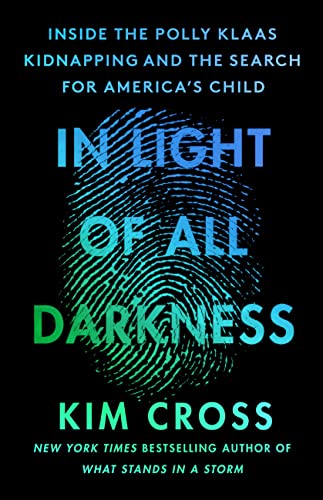
In Light of All Darkness: Inside the Polly Klaas Kidnapping and the Search for America's Child
Kim Cross
Paced like a thriller and full of insider information on the history and science of Crime Scene Investigation , In Light of All Darkness embeds readers in one of the most famous true-crime stories of our generation—the kidnapping of Polly Klaas—a case as pivotal in the history of the FBI as the Unabomber or Oklahoma City bombing. On October 1, 1993, a 12-year-old girl was kidnapped at knifepoint from her bedroom in Petaluma, California, during a sleepover with two friends, while her mother slept soundly in the room next door. This rarest of all kidnappings—a stranger abduction from the home—triggered one of the largest manhunts in FBI history. Riddled with red herrings, grave mistakes, dead ends, and false leads, from fake ransom calls to junior high pranks to dramatic SWAT raids, the 65-day search for “America’s Child” became every FBI agent’s—and every parent’s—worst nightmare. Many Americans remember Polly's face, which appeared on the national news every night, on the cover of People magazine, and on more than 8 million flyers distributed as far as China. The emotional gravity of Polly’s story touched every agent, police officer, and forensic technician who worked on her case. Many of these investigators have never shared their stories—until now. New York Times bestselling author Kim Cross has written the first comprehensive account of what happened on that fateful night in October, as well as how the case forever transformed the Bureau’s approach to solving crimes. With unprecedented access to files, crime scene photos, a videotaped murder confession, and inside sources, In Light of All Darkness follows the investigators who pieced together the evidence that led to the arrest and conviction of the kidnapper—a man currently on death row—and made the victim a household name and a girl who will never be forgotten. The book will be published on the 30th anniversary of Polly's disappearance.

African perspectives in international investment law
Yenkong Ngangjoh Hodu

The Woomera Manual on the International Law of Military Space Operations
Jack Beard, Dale Stephens
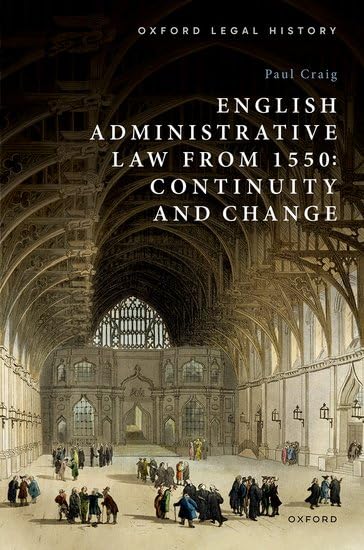
English Administrative Law from 1550: Continuity and Change
Paul Craig
The commonly held view about English administrative law is that it is of recent origin, with some dating it from the mid-20th century and some venturing back to the late 19th century. English Administrative Law from 1550: Continuity and Change upends this conventional thinking, charting its development from the mid-16th century with an in-depth examination of administrative law doctrine based on primary legal materials, statute, and case law.This book is divided into four parts. Part 1 sets out the book's principal thesis, contrasting standard perceptions concerning the existence of English administrative law with the reality of its emergence from the mid-16th century. Part 2 is concerned with Regulation and Administration from the mid-16th century to the end of the 19th century. There is detailed analysis of the regulatory and administrative state, which includes chapters on the way in which administrative policy was developedthrough individual decision-making and rulemaking, and the role played by contract in service delivery. Part 3 deals with Courts and Doctrine. It begins with discussion of foundational precepts followed by chapters on natural justice; review of law and fact; rights; delegation, fettering and purpose;reasonableness; proportionability; prerogative; and third and fourth source power. Part 4 of the book covers Remedies and Review, with chapters on invalidity; standing; the prerogative writs; injunction, declaration, quo warranto and habeas corpus; and damages and restitutionary liability.With thought-provoking and original insights, English Administrative Law from 1550 systematically elaborates and contextualizes the origins of administrative law features while linking them to their modern-day equivalents.
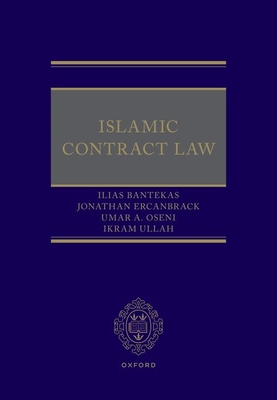
Islamic Contract Law
Ilias Bantekas, Jonathan G. Ercanbrack, Umar A. Oseni, Ikram Ullah
The first comprehensive treatment of Islamic contract law in the English language, Islamic Contract Law serves as both a reference work and an authoritative statement of the law and the Fiqh underlying it. The book's structure draws from the tradition of western contract law books to enable non-expert readers to easily navigate its structure, sources, and application. It covers the complete spectrum of Islamic contract regulation, and includes chapters on the formation of contracts, the sources of Islamic contract law, the role of intention, legal capacity, the importance of the subject matter, as well as the prohibited elements of contracts. Further chapters discuss validity and defects, contractual terms, bilateral agreements, equity-based partnership contracts, ancillary and unilateral contracts, termination and damages, and the role of third parties. Finally, a chapter is devoted to the application of Islamic law in contemporary Muslim-majority legal systems. This is a key work for understanding the contract underpinnings of Islamic finance instruments and is a must-read for scholars, legal professionals, and students with an interest in contracts governed by Islamic Law.

The Engagement of Domestic Courts with International Law: Comparative Perspectives
André Nollkaemper, Eleni Methymaki, Yuval Shany, Antonios Tzanakopoulos
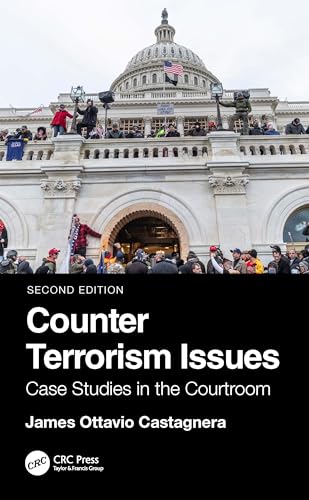
Counter Terrorism Issues
James Ottavio Castagnera
The American legal profession and judicial system bear a unique responsibility to set and maintain the balance between defending homeland security and protecting the civil liberties outlined in the Bill of Rights. These competing interests will continue to collide as the threats to our safety grow. Exploring the most significant terrorist cases of the past two decades, Counter Terrorism Case Studies in the Courtroom presents a panoramic view of the American judiciary s handling of domestic terrorism in the last 20 years.Drawing extensively upon trial transcripts, witness statements, and judicial opinions, the book brings the underlying events back to life and demonstrates how the criminal justice system has sought to grapple with conflicting facts and countervailing legal rights and responsibilities.The book examines some of the most notorious recent cases the two attacks on the World Trade Center, the Oklahoma City bombing, and the Fort Hood massacre. It also looks at lesser-known but equally important incidents, including those involving animal-rights radicals who harass university researchers and corporate executives, as well as the actions of terrorist "wannabes" who threaten our security. Also discussed are attempts by victims of terrorist attacks to sue state sponsors of terrorism.Through the words of witnesses, judges, and the attorneys who tried these cases in America s courtrooms, the book provides important commentary on the related back-stories and historical/political contexts of these events, enabling readers to understand the significance of these often-infamous attacks on U.S. soil."
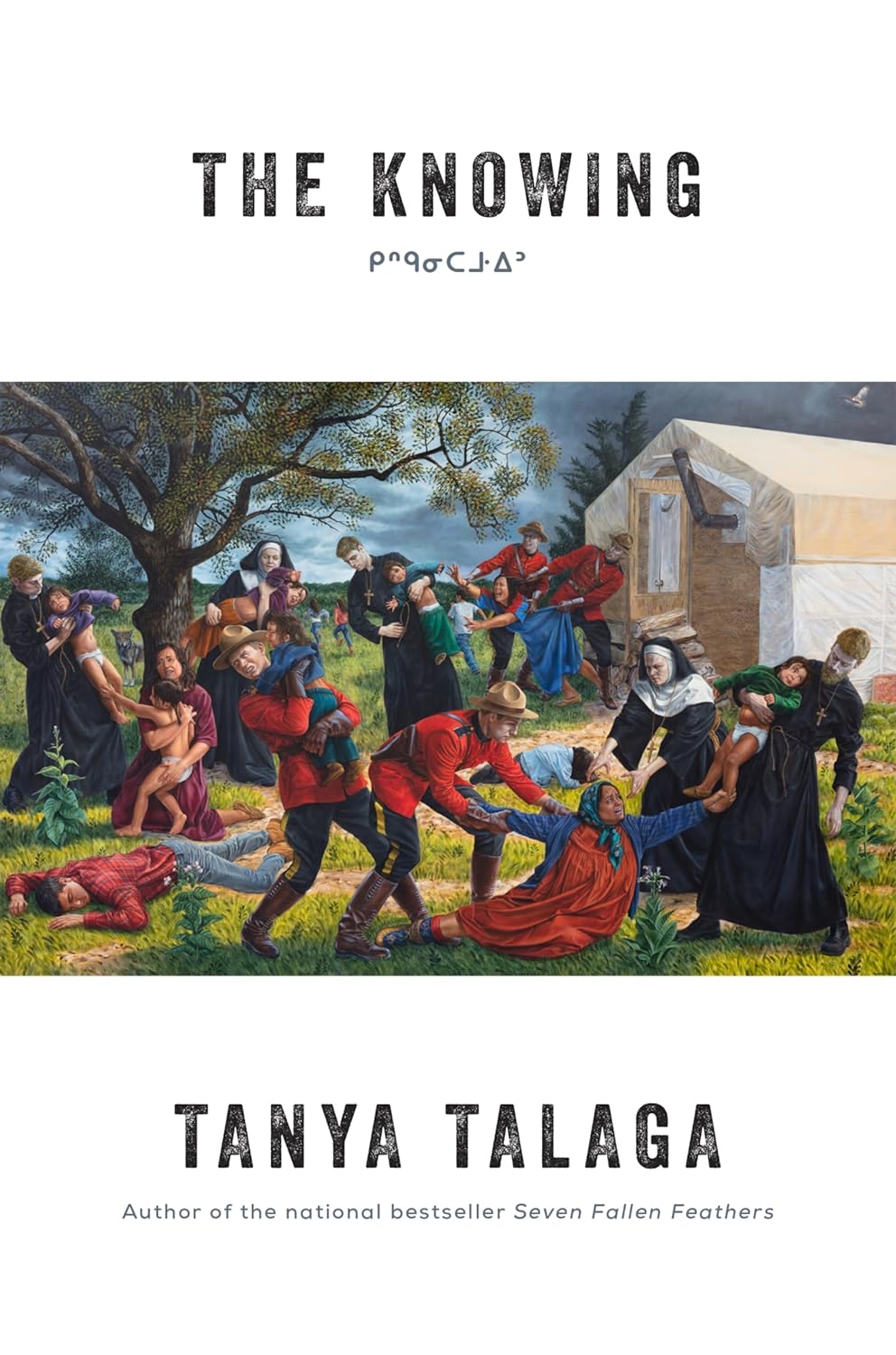
The Knowing
Tanya Talaga
From the critically acclaimed and award-winning author of Seven Fallen Feathers , an urgent exploration of the residential school system It is believed that nearly 20,000 Indigenous children have been lost on Turtle neglected, medically experimented on, abused, murdered. This is one of Canada’s greatest open secrets, an unhealed wound that until recently lay hidden by shame and abandonment. Generations of Indigenous People have known that their family members disappeared, many after being sent to residential schools, “Indian hospitals” and asylums—a coordinated system designed to destroy who First Nations, Métis and Inuit are. The system, fuelled by Church and state, committed the most heinous of sexually, physically and emotionally abusing children over decades, many of whom died and were buried on the grounds of the schools. In 2021, the discovery of 215 graves believed to house the bodies of Indigenous children on the land of the former Kamloops Indian Residential School made international headlines. Canada’s quiet horror became its very loud, public disaster, as all eyes turned to a country long seen as a model of justice and equality, a country quick to condemn the human rights violations of others, now exposed as not only having failed to stop genocide but actively pursuing it as government policy. In The Knowing , award-winning and bestselling Anishinaabe author Tanya Talaga, one of Canada’s top investigative journalists, retells the history of this country as only she can—through an Indigenous lens, by tracing the life of her great-great grandmother and family as they lived through this government- and Church-sanctioned genocide.
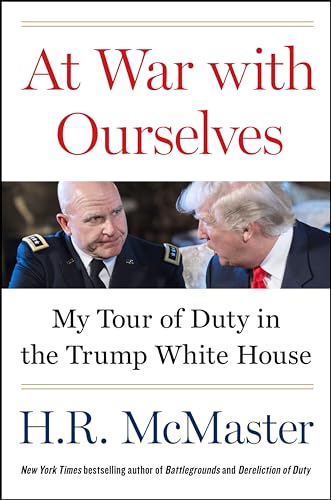
At War with Ourselves: My Tour of Duty in the Trump White House
H.R. McMaster
A revealing account of National Security Advisor H.R. McMaster’s turbulent and consequential thirteen months in the Trump White House. At War with Ourselves is the story of helping a disruptive President drive necessary shifts in U.S. foreign policy at a critical moment in history. McMaster entered an administration beset by conflict and the hyper partisanship of American politics. With the candor of a soldier and the perspective of a historian, McMaster rises above the fray to lay bare the good, the bad, and the ugly of Trump’s presidency and give readers insight into what a second Trump term would look like. While all administrations are subject to backstabbing and infighting, some of Trump’s more unscrupulous political advisors were determined to undermine McMaster and others to advance their narrow agendas. McMaster writes candidly about Cabinet officials who, deeply disturbed by Trump’s language and behavior, prioritized controlling the President over collaborating to provide the President with options. McMaster offers a frank and fresh assessment of the achievements and failures of his tenure as National Security Advisor and the challenging task of maintaining one’s bearings and focus on the mission in a hectic and malicious environment. Determined to transcend the war within the administration and focus on national security priorities, McMaster forged coalitions in Washington and internationally to help Trump advance U.S. interests. Trump’s character and personality helped him make tough decisions, but sometimes prevented him from sticking to them. McMaster adroitly assesses the record of Trump’s presidency in comparison to the Obama and Biden administrations. With the 2024 election on the horizon, At War with Ourselves highlights the crucial importance of competence in foreign policy, and makes plain the need for leaders who possess the character and intellect to guide the United States in a tumultuous world.
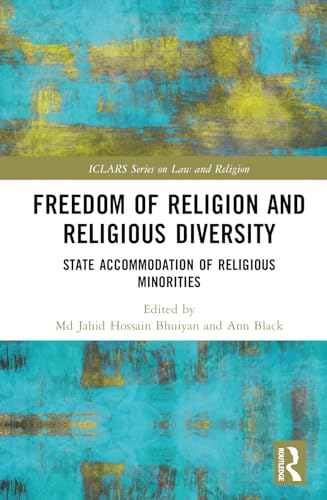
Freedom of Religion and Religious Diversity
MD Jahid Hossain Bhuiyan, Ann Black

The King Can Do No Wrong: Constitutional Fundamentals, Common Law History, and Crown Liability
Marie-France Fortin
'The king can do no wrong' remains one of the most fundamental yet misunderstood tenets of the common law tradition. Confusion over the phrase's historical origins and differing meanings has had serious consequences, making it easier for the state to escape liability for the harm caused to individuals by governmental officials or institutions. In the first dedicated monograph on the topic, Marie France-Fortin traces the historical evolution of 'the king can do no wrong' in constitutional and public law to shed new light on our current understanding of crown liability. The different meanings conveyed by the phrase in the common law world are clarified; the contradictions between them revealed. Adopting a historical constitutional approach, the book delves deep into traditional legal sources to develop an intellectual history of this key legal idea. It explains the mutation from 'the king can do no wrong' to 'the crown can do no wrong' at the end of the nineteenth century, analyzing the resulting departure from core tenets of the constitutional arrangement of the seventeenth century. The study of the evolution of 'the king can do no wrong' in English legal thinking, mirrored in Canada, is complemented by a comparative analysis of the idea in Australia, Ireland, and the United States, where its relationship with the concept of sovereign immunity is scrutinized. Retracing the evolution of the king can do no wrong in legal thinking, this book enhances academics', students', practitioners', and judges' understanding of the law of governmental liability in the common law world.
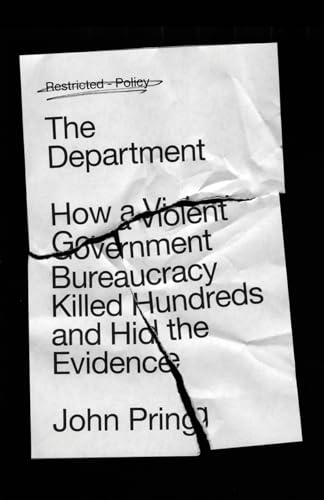
The Department: How a Violent Government Bureaucracy Killed Hundreds and Hid the Evidence
John Pring
In the early 2010s, reports of deaths linked to a government department emerged. Suicide notes, coroners' reports, and investigations by public bodies pointed to failings within the Department for Work and Pensions—the DWP—the government body responsible for the disability benefits system. As years passed, and austerity tightened its grip, the death toll mounted, and an even more disturbing picture how bureaucracy, politicians, and the private sector had combined over thirty years to reckless, deadly effect. For the last decade, disabled journalist John Pring has meticulously pieced together how the DWP ignored pleas to correct fatal flaws in the social security system and covered up its role in the deaths of hundreds, if not thousands, of disabled people. Spending years researching the heartbreaking stories of ten individuals who died, we hear how their bereaved families fought for justice and accountability. Through exclusive new research, including historical documents from the National Archives that can be revealed publicly for the first time, The Department describes how slow, bureaucratic violence has led over three decades to the deaths of countless disabled people who relied on the state’s support.
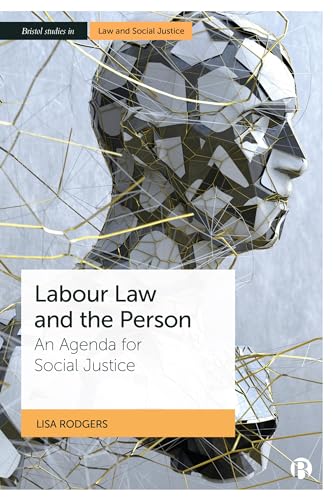
Labour Law and the Person: An Agenda for Social Justice
Lisa Rodgers
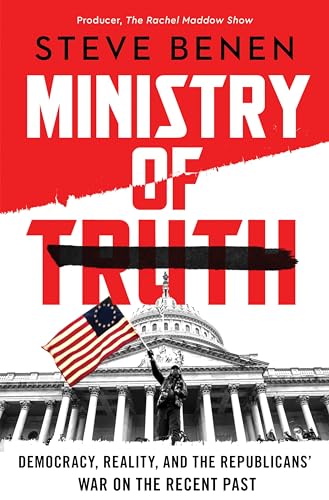
Ministry of Truth: Democracy, Reality, and the Republicans' War on the Recent Past
Steve Benen
The Instant New York Times Bestseller A searing, vital investigation of the Republican Party's dangerous campaign to rewrite recent history in real time, from the Emmy Award-winning Rachel Maddow Show producer and bestselling author of The Impostors.
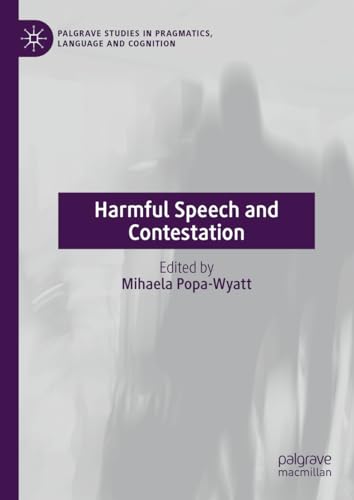
Harmful Speech and Contestation
Mihaela Popa-Wyatt
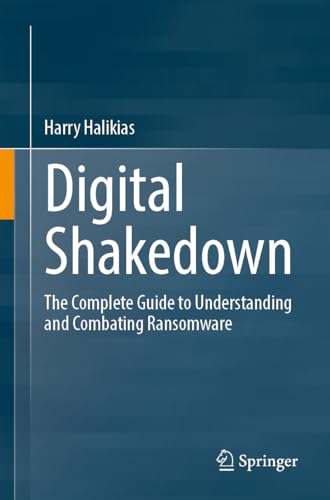
Digital Shakedown: The Complete Guide to Understanding and Combating Ransomware
Harry Halikias
This book is a comprehensive review of ransomware that covers ransomware from every angle. It presents origins, components, purpose, impacts, relevant laws, prevention techniques and proposed solutions. This book also introduces novel concepts such as the Three Cs of Ransomware and The Great Shut Down, Reboot, Pull the Plug Debate. This indispensable book provides readers with the most comprehensive information regarding ransomware ever assembled. It distils technical, legal, and practical topics in a style that is both readable and usable. Offering a thorough and compelling new perspective on ransomware, this invaluable resource benefits business leaders, IT professionals, security and privacy experts and legal practitioners. Students, and anyone seeking to understand this critical issue will want to purchase this book. It is a concise, contemporary, and compelling new perspective on ransomware that will help frame decisions for corporations and policymakers alike.
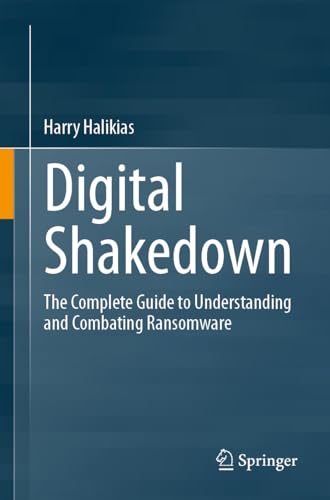
Digital Shakedown: The Complete Guide to Understanding and Combating Ransomware
Harry Halikias
This book is a comprehensive review of ransomware that covers ransomware from every angle. It presents origins, components, purpose, impacts, relevant laws, prevention techniques and proposed solutions. This book also introduces novel concepts such as the Three Cs of Ransomware and The Great Shut Down, Reboot, Pull the Plug Debate. This indispensable book provides readers with the most comprehensive information regarding ransomware ever assembled. It distils technical, legal, and practical topics in a style that is both readable and usable. Offering a thorough and compelling new perspective on ransomware, this invaluable resource benefits business leaders, IT professionals, security and privacy experts and legal practitioners. Students, and anyone seeking to understand this critical issue will want to purchase this book. It is a concise, contemporary, and compelling new perspective on ransomware that will help frame decisions for corporations and policymakers alike.
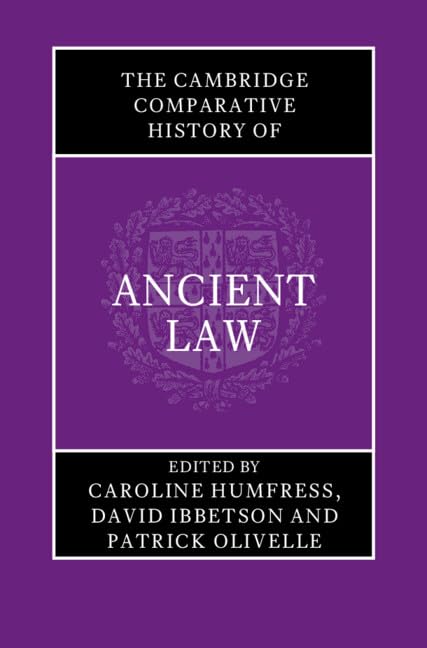
The Cambridge Comparative History of Ancient Law
Caroline Humfress, David Ibbetson, Patrick Olivelle
The Cambridge Comparative History of Ancient Law is the first of its kind in the field of comparative ancient legal history. Written collaboratively by a dedicated team of international experts, each chapter offers a new framing and understanding of key legal concepts, practices and historical contexts across five major legal traditions of the ancient world. Stretching chronologically across more than three and a half millennia, from the earliest, very fragmentary, proto-cuneiform tablets (3200–3000 BCE) to the Tang Code of 652 CE, the volume challenges earlier comparative histories of ancient law / societies, at the same time as opening up new areas for future scholarship across a wealth of surviving ancient Near Eastern, Indian, Chinese, Greek and Roman primary source evidence. Topics covered include 'law as text', legal science, inter-polity relations, law and the state, law and religion, legal procedure, personal status and the family, crime, property and contract.
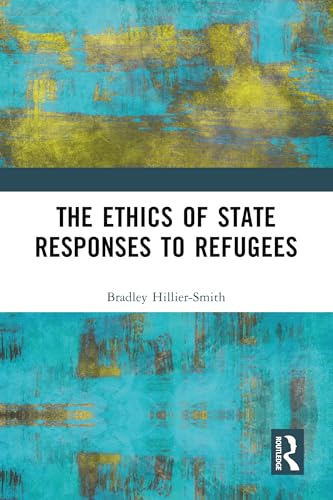
The Ethics of State Responses to Refugees
Bradley Hillier-Smith
This book appears at a time of intense debate on how states should respond to some philosophers argue states are not necessarily obligated to admit a single refugee, others argue states should continually admit refugees until the point of societal collapse. Some politicians argue for increasing refugee resettlement, others seek to prevent refugees from arriving at the border. Some countries provide expansive welcome schemes and have taken in over a million refugees, others have erected concrete walls and barbed wire fences. The Ethics of State Responses to Refugees provides an account of what an ethical response would be by developing an understanding of the moral duties that states have towards refugees. The first half of the book analyses state practices used in response to refugees, to understand the negative duties of states not to harm or violate the rights of innocent refugees. The second half analyses morally significant features of contemporary refugee displacement, to understand the positive duties of states to alleviate the distinctive harms and injustices that refugees face. The two halves together thereby outline the negative and positive duties of states towards refugees which constitute the elements of an ethical response. The book then demonstrates this ethical response is not only urgently required but also within reach.
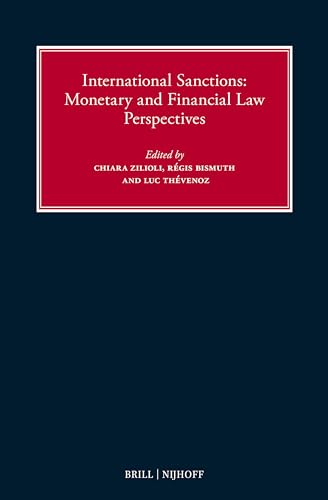
International Sanctions: Monetary and Financial Law Perspectives
Chiara Zilioli, Régis Bismuth, Luc Thevenoz
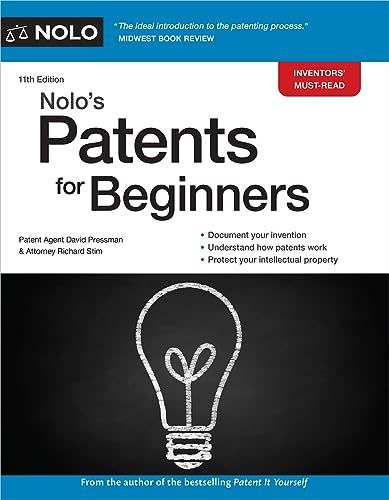
Nolo's Patents for Beginners
David Pressman, Richard Stim
A brilliantly clear and up-to-date patent guide This bestselling primer is packed with what inventors need to know about patent law basics, the patent application process, and the use of technology to get and manage patents. Nolo’s Patents for Beginners helps • document an invention • “read and write” patents • know how and why to make a patent search • understand the patent application process • determine patent ownership • understand the basics of patent infringement • get international patent protection, and • decide whether to file a provisional patent. You’ll also find patent and invention resources and a glossary of patent terms. This new edition is completely updated to cover all the latest changes in patent law and the patenting process.

Handbook of Merger Control and Environmental Policy: Theory and Applications
Luis Gautier, Mahelet G. Fikru
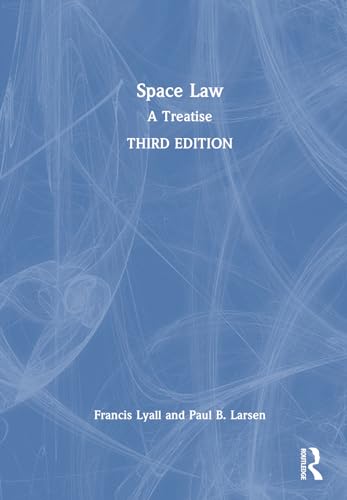
Space Law: A Treatise
Francis Lyall, Paul B. Larsen
The opening of space to exploration and use has had profound effects on society. Remote sensing by satellite has improved meteorology, land use and the monitoring of the environment. Satellite television immediately informs us visually of events in formerly remote locations, as well as providing many entertainment channels. World telecommunication facilities have been revolutionised. Global positioning has improved transport. This book examines the varied elements of public law that lie behind and regulate the use of space. It also makes suggestions for the development and improvement of the law, particularly as private enterprise plays an increasing role in space.
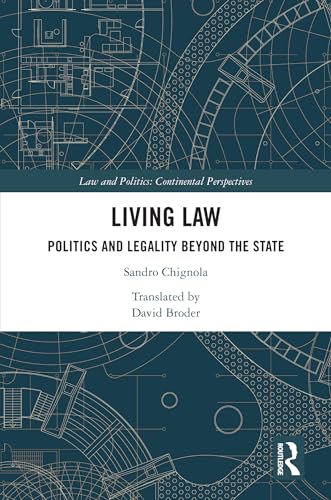
Living Law: Politics and Legality Beyond the State
Sandro Chignola, David Broder
This book offers a radical new understanding of law, beyond the confines of its formalization by the state. The book takes off from the late work of Gilles Deleuze and Michel Foucault, for whom law and its institutions came to be liberated from an ideological perspective that had treated them as sterile instruments for the reproduction of domination. Engaging its continental history, it addresses the concept of law, not merely as a ‘command’, but as the result of a much more complex legal operation aimed at dynamically stabilizing the social relations of a community. The book thus sidesteps the usual legal-political focus on those – from Hobbes to Schmitt – who have contributed to the categorical scheme of the modern state, and with it questions of political representation, sovereignty, the rigid distinction between public law and private law, and so on, as it pursues an alternative theoretical trajectory through Ravaisson, Tarde, and Hauriou. Politics, the book maintains, can be no longer be treated simply through the state form. And, relatedly, the law must be seen as a living a law that cannot be treated exclusively in formal terms, but must be taken as a grammar capable of articulating a politics of process, relationality, and innovation. Reconceived as such, law can then circumvent the aporias that arise when society is viewed as a private company, and the state seen as the bearer of the only possible means of formalizing its relationships. At the intersection of law and political theory, this book will speak to scholars and others with interests in both these areas, and especially those concerned with the limits of both conventional and critical approaches to law.

Reparations by Non-State Armed Groups under International Law: From Conflict to Repair in Colombia and Beyond
Olivia Herman
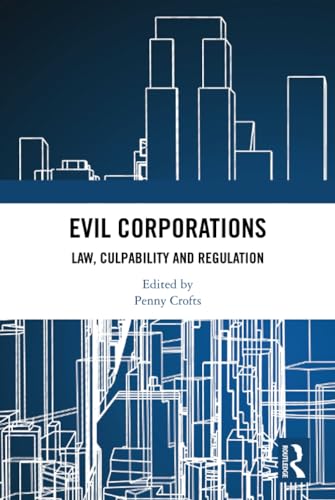
Evil Corporations
Penny Crofts
This book elaborates and interrogates the idea of evil corporations from a diverse range of disciplines. There has long been awareness of systemic harms inflicted by corporations, but this awareness has rarely led to any effective legal means to prevent and/or respond adequately to them. Lawyers and legal theorists appear to be stuck asking the same questions, and giving the same ineffective answers. Part of the problem, this book maintains, is the relative lack of theoretical interrogation into the nature of corporations as responsible, moral agents. To break this stasis, this book draws upon philosophies of wickedness in order to ask whether or not corporations are, or can be, evil. With contributions from a range of different disciplines, including law, cultural theory, theology, and philosophy, it offers a novel account of how and why corporate wrongs are caused, whilst exploring the extent to which the legal system itself facilitates such wrongdoing. The book is targeted at a broad international audience with research interests in corporate crime. This will be of particular interest to those within the legal discipline including corporate law, criminal law, corporate crime and law and humanities scholars.